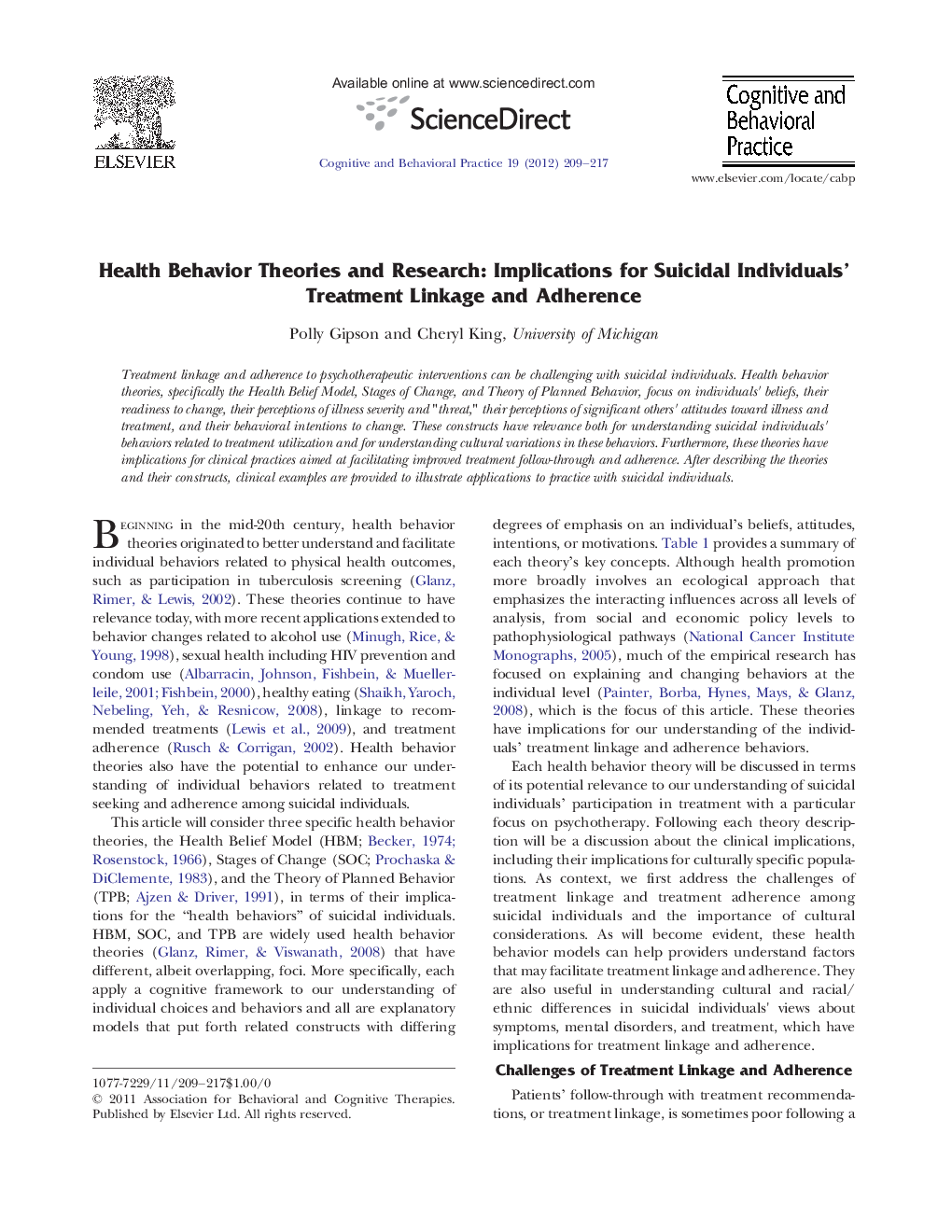| Article ID | Journal | Published Year | Pages | File Type |
|---|---|---|---|---|
| 904496 | Cognitive and Behavioral Practice | 2012 | 9 Pages |
Treatment linkage and adherence to psychotherapeutic interventions can be challenging with suicidal individuals. Health behavior theories, specifically the Health Belief Model, Stages of Change, and Theory of Planned Behavior, focus on individuals' beliefs, their readiness to change, their perceptions of illness severity and "threat," their perceptions of significant others' attitudes toward illness and treatment, and their behavioral intentions to change. These constructs have relevance both for understanding suicidal individuals' behaviors related to treatment utilization and for understanding cultural variations in these behaviors. Furthermore, these theories have implications for clinical practices aimed at facilitating improved treatment follow-through and adherence. After describing the theories and their constructs, clinical examples are provided to illustrate applications to practice with suicidal individuals.
